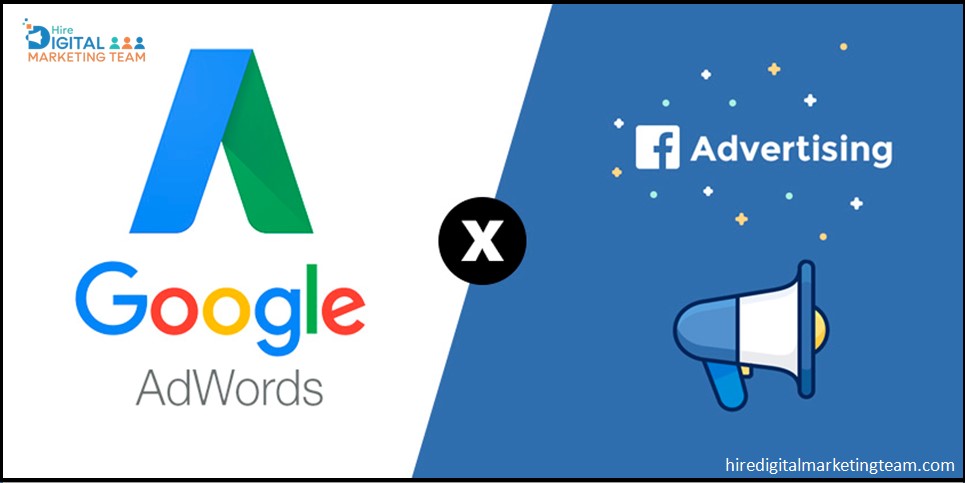Top 50 High Authority Guest Posting Sites list In 2024
- 1881 Views
- 0

In today's digital age, online advertising has become an essential component of marketing strategies for businesses worldwide. Two major players in the online advertising space are Facebook and Google. Both platforms offer extensive reach and targeting options, making them popular choices for advertisers. However, when it comes to determining which campaign is best for your business, the decision can be challenging. HireDigitalMarketingTeam is the Best SEO Company in Jaipur, And in this blog post, we will compare Google vs Facebook campaigns to help you make an informed choice.
Google, on the other hand, is the world's most popular search engine, processing over 3.5 billion searches per day. Google Ads, formerly known as Google AdWords, is the advertising platform that allows businesses to display their ads on Google's search engine results pages (SERPs) and its vast display network. Google Ads primarily work on a pay-per-click (PPC) model, where advertisers pay only when users click on their ads.
One of the significant advantages of running a Google campaign is its intent-based targeting. When users search for specific keywords on Google, their search intent indicates a higher likelihood of being interested in the products or services related to those keywords. This makes Google Ads highly effective for capturing potential customers who are actively searching for what your business offers.
Google offers a variety of ad formats, including search ads, display ads, video ads, and more. These formats allow you to tailor your campaigns to suit your business goals and reach users across multiple touchpoints on the web.
Facebook is the largest social media platform globally, boasting over 2.8 billion monthly active users. One of the significant advantages of running a campaign on Facebook is its highly sophisticated targeting options. The platform allows you to target users based on their demographics, interests, behaviors, and even their connections. This level of granular targeting enables you to reach your ideal audience effectively.
Additionally, Facebook's ad formats are diverse and visually appealing. You can choose from photo ads, video ads, carousel ads, and more. The visually engaging nature of Facebook ads often leads to higher user engagement and click-through rates. Moreover, Facebook's powerful ad analytics provides detailed insights into your campaign's performance, helping you optimize your ads for better results.
When it comes to deciding which campaign is best for your business, it's crucial to consider your goals, target audience, and budget.
If you want to build brand awareness, engage with your audience, or target specific demographics and interests, Facebook campaigns are an excellent choice. Facebook's extensive targeting options and visually appealing ad formats can help you reach your target audience effectively and increase brand visibility.
On the other hand, if your primary objective is to capture users actively searching for your products or services, Google campaigns may be the better option. Google Ads' intent-based targeting ensures that your ads are shown to users who are more likely to convert into customers. This can lead to higher conversion rates and a more direct impact on your bottom line.
However, it's important to note that the best approach for many businesses is to run campaigns on both platforms simultaneously. Google vs Facebook complement each other well, and by combining their strengths, you can maximize your reach and potential for conversions.
In conclusion, both Facebook and Google offer powerful advertising platforms with unique strengths. Choosing the best campaign ultimately depends on your business goals, target audience, and budget. Carefully evaluate your objectives and consider the strengths of each platform to make an informed decision. Remember, it's not about Google vs Facebook; it's about leveraging the strengths of both platforms to achieve your marketing goals.